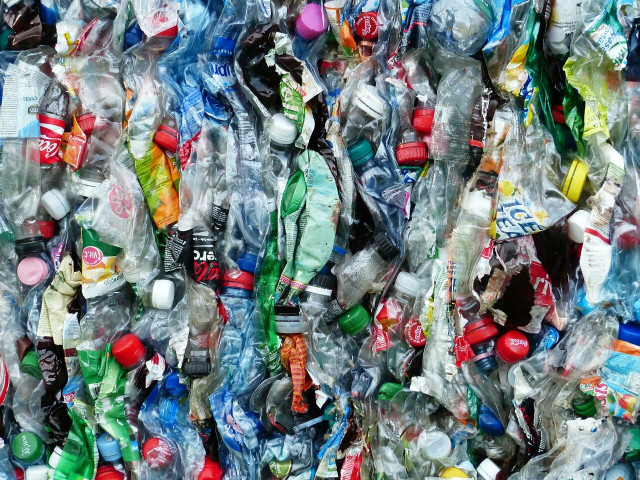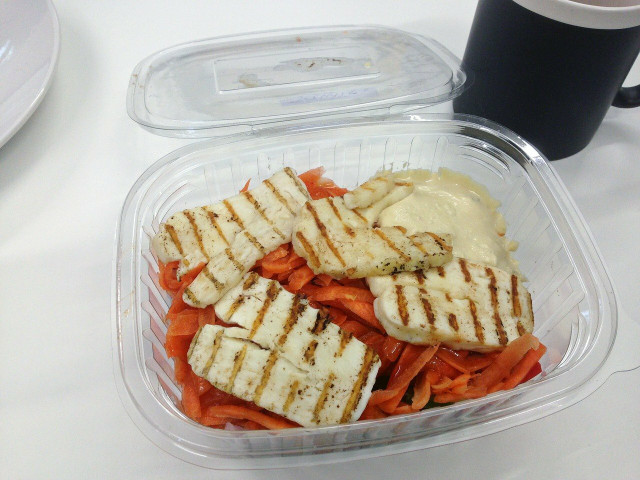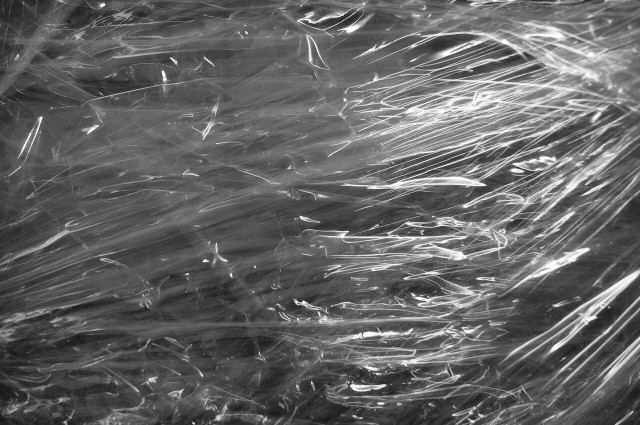Plastics contain chemical compounds that can leach into our food, which can have damaging effects on our health. Find out why you shouldn’t microwave plastic here.
Which Different Types of Plastics Are There?

(Foto: CC0 / Pixabay / Hans)
Scientists say that microplastic pollution is now ubiquitous across the planet. A lot of food comes packaged in plastic, and most people microwave food in plastic containers or plastic wrap without thinking about the effects that heating the plastic can have on their health. Plastics are made primarily from raw materials such as oil or petroleum. When you heat food in the microwave in a plastic container or using wrap, chemicals may leach out of the plastic and into the food, which increases your risk of cancer as well as many other health problems.
There are seven types of plastic:
- Polyethylene terephthalate (PET or PETE) is commonly used for cooking oil bottles and soda bottles.
- High-density polyethylene (HDPE) is used for protein powder tubs and cereal box liners.
- Polyvinyl chloride (PVC) is used for shower curtains, plumbing pipes, and credit cards.
- Low-density polyethylene (LDPE) is used for plastic bags and food packaging.
- Polypropylene (PP) is used for bottle caps, yogurt pots, baby bottles, and straws.
- Polystyrene or Styrofoam (PS) is used for disposable food containers, disposable cups, shipping, and product packaging.
- Other is the category for plastics that do not belong in any of the six types. Some examples are clear plastic cutlery and CD’s/DVD’s.
Type 2 high-density polyethylene and type 5 polypropylene are the most microwave-safe plastics, because they are heat resistant so they remain sturdy at high temperatures. However, as they are derived from petroleum, they will still leach chemicals when heated, like other types of plastic.
Reasons Why You Shouldn’t Microwave Plastic Containers



(Foto: CC0 / Pixabay / jeanvdmeulen)
Plastics contain plasticizers, such as phthalates and bisphenol, which can leach into your food when the plastic is heated. Bisphenol (BPA) and phthalates are the biggest chemicals of concern with regard to microplastics in food. A 2011 study found that people who eat a lot of plastic-packaged food have high levels of exposure to these chemicals compared to when their diet contains more fresh food.
- BPA is most commonly found in polycarbonate plastics, which are used to make food storage containers and drinking bottles. It is a chemical used to make strong and resilient plastics.
- Phthalates are used to make plastics more durable and flexible. Phthalates are typically found in nail polish, lotions and fragrances, as well as other cosmetics products.
BPA and Phthalates are both considered ‘endocrine disruptors’, because they mimic or block the body’s natural hormones, and can have irreversible effects on estrogen and testosterone levels.
A study from 2021 has found that exposure to phthalates has many negative health effects, including long-term impacts on the success of pregnancy, child growth and development, and reproductive systems in both young children and adolescents.
BPA is known to disrupt the body’s natural hormones and has been linked to obesity, diabetes and reproductive harm. For this reason, you should try to use products that are BPA-free.
Alternatives to Using Plastic Containers in Microwaves



(Foto: CC0 / Pixabay / BestNerdLife)
There are safer ways that you can heat food in the microwave:
- Instead of heating food in the microwave using a plastic container or plastic wrap, use a glass or ceramic microwave-proof dish. Using a glass or ceramic dish instead of plastic means you get rid of the risk that chemicals will leach into the food. There are many ways that you can reduce the amount of plastic that you use in your everyday life, and you can even try to live life without plastic. You can buy microwave glass bowls on Amazon**.
- Choose phthalate-free and BPA-free containers for heating in the microwave.
- Check for a ‘microwave safe’ label on the bottom of plastic containers.
- Avoid microwaving plastic containers that are old and have cracks or scratches on them, as this increases the risk that they will leach chemical compounds into your food.
There are some other ways that you can reduce the amount of microplastics that you are exposed to:
- Avoid eating canned foods, as BPA is sometimes found in the lining of cans.
- Eat more whole foods that do not come in plastic packaging. By ‘precycling’, you can say no to plastic waste.
- Look for drinks sold in cartons or glasses rather than plastic bottles.
- If you use a reusable plastic water bottle, switch to one that is made from stainless steel. A 2022 study has found that reusable plastic bottles release hundreds of chemicals.
Is Plastic Wrap Microwave-Safe?



(Foto: CC0 / Pixabay / Monsterkoi)
In the US, plastic wrap is made of polyvinyl chloride or PVC, and contains a ‘plasticizer’ called Bis (2-ethylhexyl) adipate (DEHA). Although DEHA is not a phthalate, it is chemically very similar. The United States Department of Agriculture states that microwave plastic wraps are safe to use, although you should not let the plastic wrap touch the food. However, there are numerous studies that have found using plastic wrap in the microwave has adverse health risks. A 2018 study by the University of Pretoria has found that plastic wrap may have adverse health effects and cancer risks due to the presence of potentially dangerous chemicals in many brands of plastic wrap, and in particular the presence of DEHA.
It is best to avoid plastic wrap because of the potential health effects. Check out 9 of the best plastic wrap alternatives to use instead.
Read on:
- What Is rPET and Should We Be Choosing it Over Plastic?
- Can You Recycle Plastic Bags? – Recycling Tips
- Plastic Pollution in the Ocean: What Can I Do About It?
Do you like this post?






